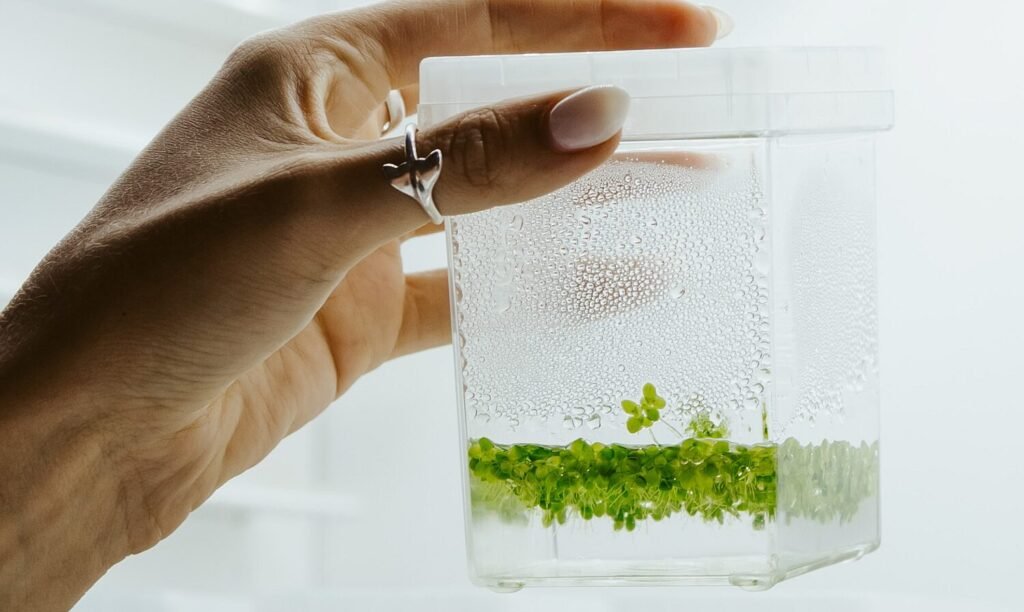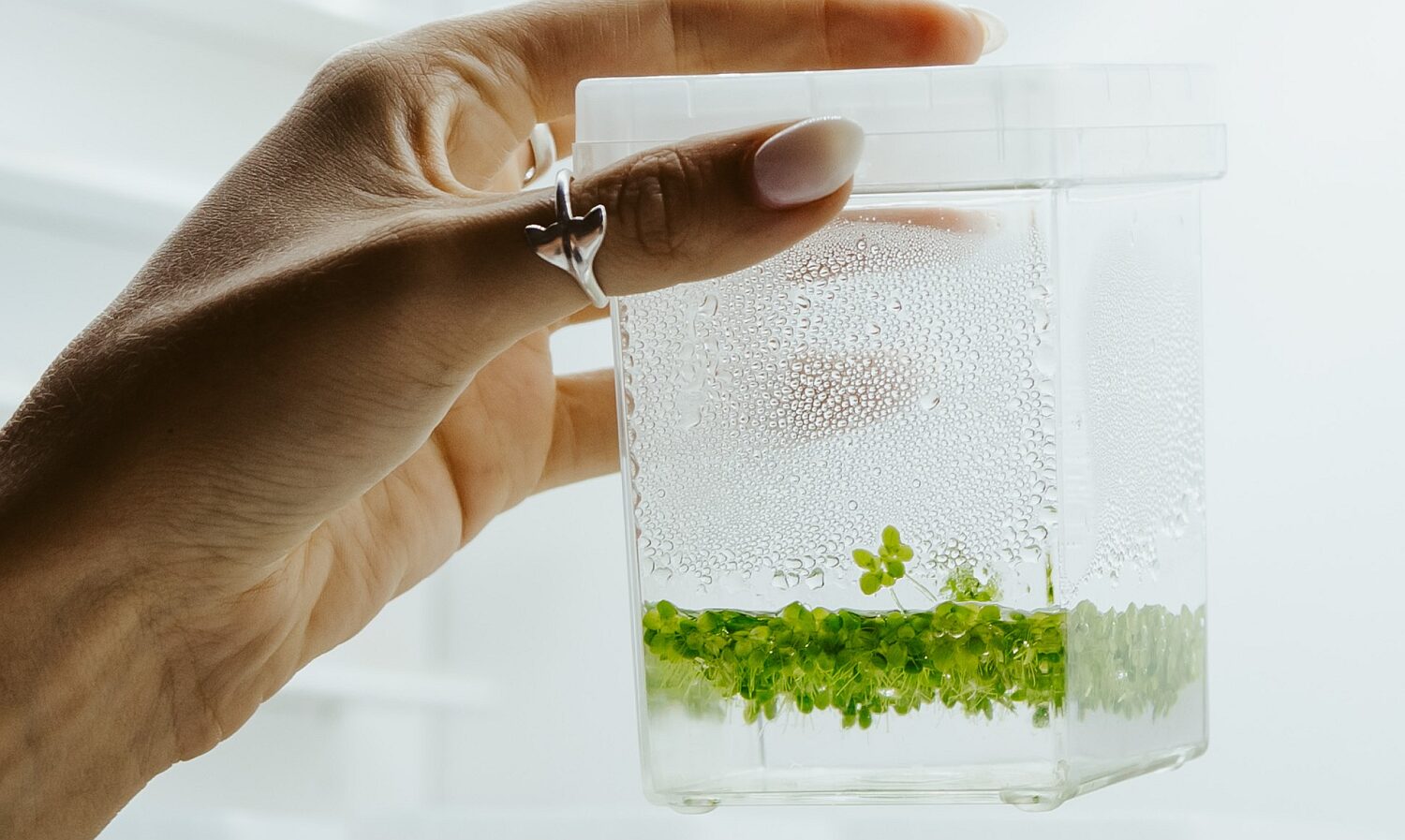
South African startup Aspyre Foods is building a platform it claims can turn duckweed into a biofactory for producing two highly functional food proteins: casein and RuBisCO.
While several startups are engineering plants to produce recombinant dairy proteins via “molecular” farming, the economics look more favorable if you can also extract RuBisCO (a protein found in all green leaves) from the same plants, says Aspyre cofounder Thomas Bartleman.
And duckweed (which US-based Plantible is using for RuBisCO production) is an ideal vehicle for both proteins, as it grows extremely rapidly with few inputs, he tells AgFunderNews.
“We’re looking at maximizing the biomass value,” adds Bartleman, who launched Aspyre in 2022 with molecular biologist Inge Mendelsohn.
“Duckweed grows a lot faster [than other plants] and you can harvest it continuously. It’s a lot more resource efficient with low water use, and you can produce it in a low-cost contained environment on non-arable land.
“Plus with duckweed, we won’t have to do open field trials, which is time consuming [and compounded by regulatory challenges as dairy proteins are allergens],” adds Bartleman, who had initially explored expressing casein proteins in crops such as flax before settling on duckweed in 2024.
Growing your own source material presents challenges of its own, he notes. However, being vertically integrated is a key advantage when it comes to extracting RuBisCO protein, which degrades rapidly after harvest.

‘We’re looking at maximizing the biomass value’
One of the most abundant proteins on the planet with functionality rivaling animal proteins such as egg and whey protein isolate, RuBisCO has multiple applications in foods given its foaming, emulsification and gelling properties and protein digestibility.
The challenge when extracting it from vivid green leaves is achieving protein with a neutral color and taste that retains its functionality.
Recombinant casein production, meanwhile, also comes with big challenges. In mammals, the four key casein proteins (alpha-S-1, alpha-S-2, beta, and kappa) are assembled into micelles, structures that create the functionality associated with products such as melty, stretchy cheese.
Firms in the precision fermentation or molecular farming space are not necessarily looking to produce all four casein proteins but still need to create micellular structures so the proteins are functional, notes Bartleman.
“We’re focusing on two [casein proteins], which we are making separately [one strain of duckweed for one casein protein, another duckweed strain for the second casein protein].”
Looking at the market opportunity for “animal-free” dairy proteins, he says, the key is providing a consistent supply in a volatile dairy market with the right functionality at the right price point. Ethical and environmental factors will serve as a bonus, but will not underpin the business case or the pitch to customers.
“ESG will play a role for sure, but it is not going to be the primary way that we communicate with customers, who are looking for a reliable and resilient and cost-effective supply of ingredients.”
Goal to have a pilot facility up and running in late 2026
To date Aspyre Foods has raised funds from Nucleus Capital, OneBio, Uncompromise, Purple Orange Ventures, Launch Africa Ventures and 3 Capital Ventures and is looking to launch a seed round later this year or early next to fund a pilot production facility, says Bartleman.
“If we raise on the timeline that we have set out, the goal is to have a pilot production facility up and running by the end of Q3 next year.”
He adds: “At the lab-scale, we have a well-oiled, well-functioning RuBisCO extraction process and we’ve got significant casein yields. We’re constantly pushing that to get to a point that gets us as close as possible, or even beyond price parity. What we’re actively working on now is co-extraction of the proteins, which brings a whole host of benefits in terms of cost.”
He adds: “We’re going to use South Africa to optimize the process at the pilot facility and test out new products in the market, both in South Africa and in other African countries, where the regulatory approval processes look somewhat different [to those in the US and Europe, for example].
“That gives us an opportunity to really refine our offering before we enter bigger markets. But we’re not discounting Asia, and we’re equally keeping an eye on the Middle East.”
The post Aspyre Foods taps duckweed for casein and RuBisCO: ‘We’re maximizing the biomass value’ appeared first on AgFunderNews.



